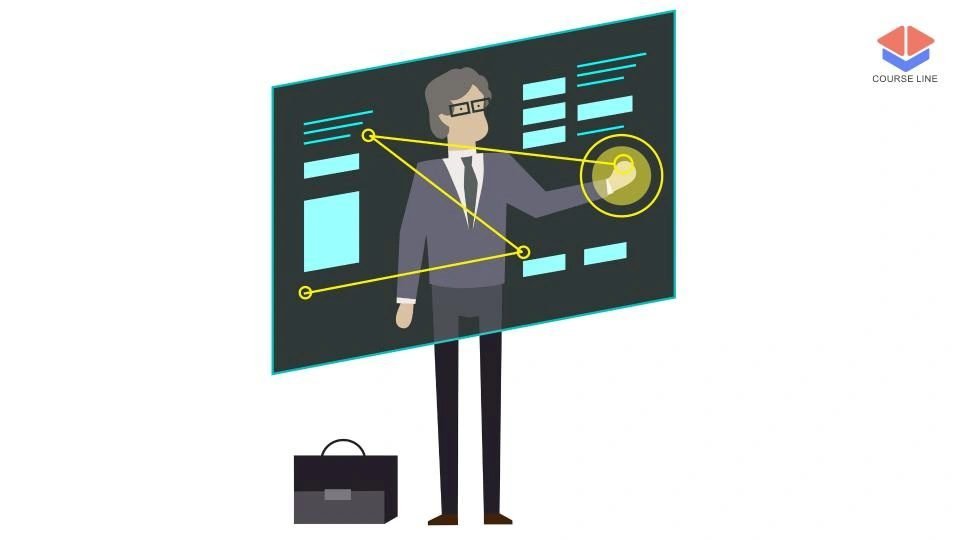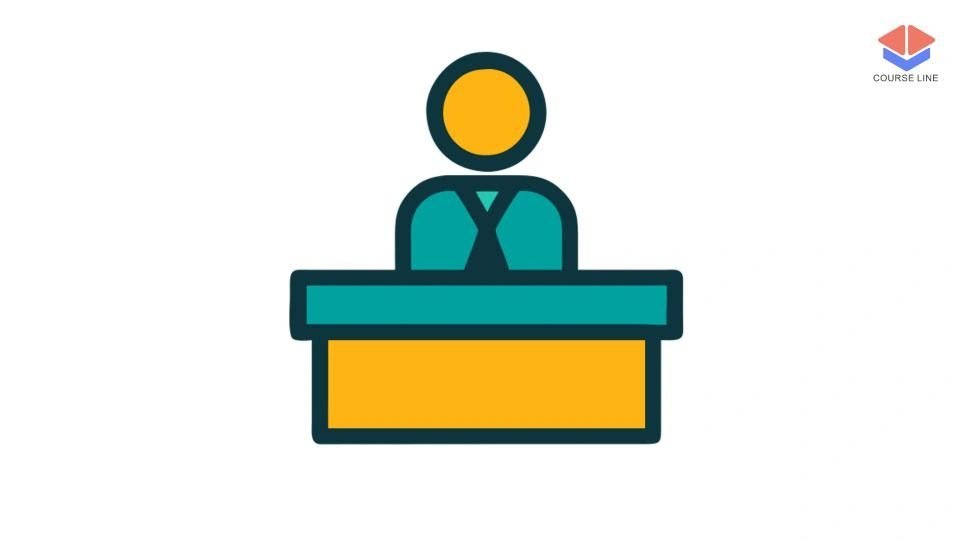Course Features
Price
Study Method
Online | Self-paced
Course Format
Reading Material - PDF, article
Duration
8 hours, 45 minutes
Qualification
No formal qualification
Certificate
At completion
Additional info
Coming soon
- Share
Overview
The Control Systems Level 3 Advanced Diploma offers a deep dive into the world of control systems, starting with an introduction to the fundamental concepts and applications. Students will explore the different types of control systems, such as open-loop and closed-loop systems, and understand the core components and terminology. The course emphasizes the design process of control systems, ensuring learners are equipped with a solid foundation in system analysis, including mathematical modeling, transfer functions, and block diagrams.
As the course progresses, students will delve into more advanced topics such as time and frequency response analysis, stability analysis techniques, and the application of PID controllers. The focus on practical skills continues with advanced control techniques like feedforward, cascade, and ratio control, as well as compensation methods using lead and lag compensators.
A key highlight of this diploma is the exploration of digital control systems, including discrete PID controllers and stability analysis of sampled data systems. Learners will also gain knowledge in state-space control, with an emphasis on pole placement design and full-state feedback control. The course also introduces students to Programmable Logic Controllers (PLC) and the integration of control systems with hardware interfaces.
Real-world applications of control systems are explored across industries such as industrial automation, robotics, aerospace, automotive, and process control. Students will also work with design tools like MATLAB and Simulink for simulation and control system design, while hands-on projects provide practical experience in system implementation and troubleshooting.
Finally, students will learn essential maintenance and safety protocols to ensure optimal performance and longevity of control systems. This course provides learners with both theoretical knowledge and practical skills, preparing them for successful careers in the rapidly evolving field of control systems engineering.
Upon completion of the Control Systems Level 3 Advanced Diploma, graduates can pursue various career paths in control systems engineering, automation, robotics, and process control. Potential roles include control systems engineer, automation technician, PLC programmer, process control engineer, and robotics technician. Graduates may also advance into specialized areas such as aerospace control systems or automotive systems engineering.
Who is this course for?
The Control Systems Level 3 Advanced Diploma offers a deep dive into the world of control systems, starting with an introduction to the fundamental concepts and applications. Students will explore the different types of control systems, such as open-loop and closed-loop systems, and understand the core components and terminology. The course emphasizes the design process of control systems, ensuring learners are equipped with a solid foundation in system analysis, including mathematical modeling, transfer functions, and block diagrams.
As the course progresses, students will delve into more advanced topics such as time and frequency response analysis, stability analysis techniques, and the application of PID controllers. The focus on practical skills continues with advanced control techniques like feedforward, cascade, and ratio control, as well as compensation methods using lead and lag compensators.
A key highlight of this diploma is the exploration of digital control systems, including discrete PID controllers and stability analysis of sampled data systems. Learners will also gain knowledge in state-space control, with an emphasis on pole placement design and full-state feedback control. The course also introduces students to Programmable Logic Controllers (PLC) and the integration of control systems with hardware interfaces.
Real-world applications of control systems are explored across industries such as industrial automation, robotics, aerospace, automotive, and process control. Students will also work with design tools like MATLAB and Simulink for simulation and control system design, while hands-on projects provide practical experience in system implementation and troubleshooting.
Finally, students will learn essential maintenance and safety protocols to ensure optimal performance and longevity of control systems. This course provides learners with both theoretical knowledge and practical skills, preparing them for successful careers in the rapidly evolving field of control systems engineering.
Upon completion of the Control Systems Level 3 Advanced Diploma, graduates can pursue various career paths in control systems engineering, automation, robotics, and process control. Potential roles include control systems engineer, automation technician, PLC programmer, process control engineer, and robotics technician. Graduates may also advance into specialized areas such as aerospace control systems or automotive systems engineering.
Requirements
The Control Systems Level 3 Advanced Diploma offers a deep dive into the world of control systems, starting with an introduction to the fundamental concepts and applications. Students will explore the different types of control systems, such as open-loop and closed-loop systems, and understand the core components and terminology. The course emphasizes the design process of control systems, ensuring learners are equipped with a solid foundation in system analysis, including mathematical modeling, transfer functions, and block diagrams.
As the course progresses, students will delve into more advanced topics such as time and frequency response analysis, stability analysis techniques, and the application of PID controllers. The focus on practical skills continues with advanced control techniques like feedforward, cascade, and ratio control, as well as compensation methods using lead and lag compensators.
A key highlight of this diploma is the exploration of digital control systems, including discrete PID controllers and stability analysis of sampled data systems. Learners will also gain knowledge in state-space control, with an emphasis on pole placement design and full-state feedback control. The course also introduces students to Programmable Logic Controllers (PLC) and the integration of control systems with hardware interfaces.
Real-world applications of control systems are explored across industries such as industrial automation, robotics, aerospace, automotive, and process control. Students will also work with design tools like MATLAB and Simulink for simulation and control system design, while hands-on projects provide practical experience in system implementation and troubleshooting.
Finally, students will learn essential maintenance and safety protocols to ensure optimal performance and longevity of control systems. This course provides learners with both theoretical knowledge and practical skills, preparing them for successful careers in the rapidly evolving field of control systems engineering.
Upon completion of the Control Systems Level 3 Advanced Diploma, graduates can pursue various career paths in control systems engineering, automation, robotics, and process control. Potential roles include control systems engineer, automation technician, PLC programmer, process control engineer, and robotics technician. Graduates may also advance into specialized areas such as aerospace control systems or automotive systems engineering.
Career path
The Control Systems Level 3 Advanced Diploma offers a deep dive into the world of control systems, starting with an introduction to the fundamental concepts and applications. Students will explore the different types of control systems, such as open-loop and closed-loop systems, and understand the core components and terminology. The course emphasizes the design process of control systems, ensuring learners are equipped with a solid foundation in system analysis, including mathematical modeling, transfer functions, and block diagrams.
As the course progresses, students will delve into more advanced topics such as time and frequency response analysis, stability analysis techniques, and the application of PID controllers. The focus on practical skills continues with advanced control techniques like feedforward, cascade, and ratio control, as well as compensation methods using lead and lag compensators.
A key highlight of this diploma is the exploration of digital control systems, including discrete PID controllers and stability analysis of sampled data systems. Learners will also gain knowledge in state-space control, with an emphasis on pole placement design and full-state feedback control. The course also introduces students to Programmable Logic Controllers (PLC) and the integration of control systems with hardware interfaces.
Real-world applications of control systems are explored across industries such as industrial automation, robotics, aerospace, automotive, and process control. Students will also work with design tools like MATLAB and Simulink for simulation and control system design, while hands-on projects provide practical experience in system implementation and troubleshooting.
Finally, students will learn essential maintenance and safety protocols to ensure optimal performance and longevity of control systems. This course provides learners with both theoretical knowledge and practical skills, preparing them for successful careers in the rapidly evolving field of control systems engineering.
Upon completion of the Control Systems Level 3 Advanced Diploma, graduates can pursue various career paths in control systems engineering, automation, robotics, and process control. Potential roles include control systems engineer, automation technician, PLC programmer, process control engineer, and robotics technician. Graduates may also advance into specialized areas such as aerospace control systems or automotive systems engineering.
-
- Overview of Control Systems and their applications 00:10:00
- Types of Control Systems: Open-loop and Closed-loop 00:10:00
- Control System Components and Terminology 00:10:00
- Control System Design Process 00:10:00
-
- Transfer Functions and Block Diagrams 00:10:00
- Laplace Transform and Time Domain Analysis 00:10:00
- State-Space Representation of Control Systems 00:10:00
- System Stability and Routh-Hurwitz Criterion 00:10:00
- Time Response Analysis: First Order and Second Order Systems 00:10:00
- Performance Specifications: Rise Time, Settling Time, Overshoot, etc. 00:10:00
- Frequency Response Analysis: Bode Plots, Nyquist Plots 00:10:00
- Stability Analysis: Root Locus Technique 00:10:00
- Feedforward Control 00:10:00
- Cascade Control 00:10:00
- Ratio Control 00:10:00
- Gain Scheduling 00:10:00
- Adaptive Control 00:10:00
- Introduction to Digital Control Systems 00:10:00
- Z-Transform and Sampled Data Systems 00:10:00
- Discrete PID Controllers 00:10:00
- Stability Analysis of Digital Control Systems 00:10:00
- PLC (Programmable Logic Controller) Basics 00:10:00
- PLC Programming for Control Systems 00:10:00
- Hardware Interface and Integration 00:10:00
- Case Studies on Real-world Control System Implementation 00:10:00
- MATLAB/Simulink for Control System Simulation 00:10:00
- Control System Design Software 00:10:00
- Hands-on Projects and Simulations 00:10:00
- Exam of Control Systems Level 3 Advanced Diploma 00:50:00

No Reviews found for this course.
Is this certificate recognized?
Yes, our premium certificate and transcript are widely recognized and accepted by embassies worldwide, particularly by the UK embassy. This adds credibility to your qualification and enhances its value for professional and academic purposes.
I am a beginner. Is this course suitable for me?
Yes, this course is designed for learners of all levels, including beginners. The content is structured to provide step-by-step guidance, ensuring that even those with no prior experience can follow along and gain valuable knowledge.
I am a professional. Is this course suitable for me?
Yes, professionals will also benefit from this course. It covers advanced concepts, practical applications, and industry insights that can help enhance existing skills and knowledge. Whether you are looking to refine your expertise or expand your qualifications, this course provides valuable learning.
Does this course have an expiry date?
No, you have lifetime access to the course. Once enrolled, you can revisit the materials at any time as long as the course remains available. Additionally, we regularly update our content to ensure it stays relevant and up to date.
How do I claim my free certificate?
I trust you’re in good health. Your free certificate can be located in the Achievement section. The option to purchase a CPD certificate is available but entirely optional, and you may choose to skip it. Please be aware that it’s crucial to click the “Complete” button to ensure the certificate is generated, as this process is entirely automated.
Does this course have assessments and assignments?
Yes, the course includes both assessments and assignments. Your final marks will be determined by a combination of 20% from assignments and 80% from assessments. These evaluations are designed to test your understanding and ensure you have grasped the key concepts effectively.
Is this course accredited?
We are a recognized course provider with CPD, UKRLP, and AOHT membership. The logos of these accreditation bodies will be featured on your premium certificate and transcript, ensuring credibility and professional recognition.
Will I receive a certificate upon completion?
Yes, you will receive a free digital certificate automatically once you complete the course. If you would like a premium CPD-accredited certificate, either in digital or physical format, you can upgrade for a small fee.
Course Features
Price
Study Method
Online | Self-paced
Course Format
Reading Material - PDF, article
Duration
8 hours, 45 minutes
Qualification
No formal qualification
Certificate
At completion
Additional info
Coming soon
- Share
Estate Agent Level 5 Advanced Diploma
Course Line238£490.00Original price was: £490.00.£14.99Current price is: £14.99.Oncology Clinical Trials: From Design to Implementation
Course Line246£490.00Original price was: £490.00.£14.99Current price is: £14.99.Office Manager Level 3 Advanced Diploma
Course Line239£490.00Original price was: £490.00.£14.99Current price is: £14.99.





